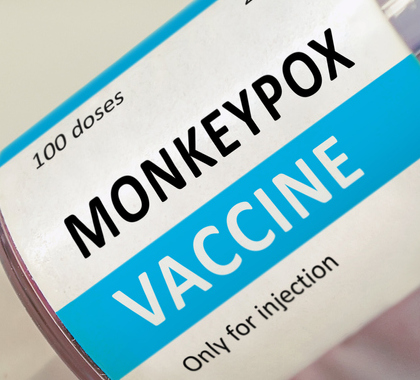Operation Warp Speed demonstrated that vaccine development need not occur on a decadal time scale. Americans got vaccines in less than twelve months because the Food and Drug Administration (FDA) was pushed out of the way. The FDA has returned to business as usual, privileging bureaucratic rules over the well-being of Americans.
Consider some recent FDA headlines. In February, the agency shut down an Abbott Laboratories factory making baby formula over bacterial contamination. A job well done. Yet the shutdown predictably led to a formula shortage and the FDA failed to communicate this to the Biden Administration until panicked parents were desperately scouring stores. We could have relaxed tariffs and FDA labeling requirements on European formula, which the House and Senate have now done, before the shortage became acute.
The FDA has thwarted containment of the Monkeypox outbreak. An effective vaccine exists, and one million doses were in a warehouse in Denmark awaiting shipment, but unfortunately in a new warehouse. The FDA insists on inspecting every warehouse from which drugs are shipped. The European Medicines Agency had inspected the warehouse and judged that it met European and American safety standards. Better Americans get sick than we trust Europeans.
The FDA approval process is slowing development of vaccines against multiple COVID-19 variants. Instead, we are using vaccines tailored to the 2020 variant. According to pharmaceutical CEO Patrick Collison, “In our view it is probably true that, with competent execution, we could roll out pan-variant COVID vaccines before the end of 2022. … Not having pan-variant vaccines in 2022 is best thought of as a choice.”
The FDA is finally considering over the counter sales for at least one birth control pill. Women would no longer have to visit a doctor, greatly reducing cost and improving access.
In addition to Operation Warp Speed, the Trump Administration also championed Right to Try legislation for drugs. The FDA is actively subverting this law. Here is pharmaceutical CEO Vivek Ramaswamy’s description: “The agency absolutely hates the Right to Try law. … [N]o rational company wants to alienate the FDA, even if that means giving a cold shoulder to Right to Try.”
Such “accomplishments” are not new. The regulation of pharmaceuticals has been a disaster. Congress delegated the agency this power in two steps, authority to determine if drugs were safe in 1938 and the power to regulate efficacy in 1962. The FDA in 1962 also gained authority over the testing protocols for new drugs. Today only drugs the FDA declares safe and effective can be legally sold in the U.S.
Demonstrating efficacy drives up the cost of and lengthens the approval time for new drugs. The delays have been deadly. Justification for this strong statement comes from drugs approved for use first in Europe and eventually by the FDA. The illnesses and deaths while Americans waited on the FDA are attributable to the delay.
Fears of drug companies pushing modern-day snake oil on an unsuspecting public motivate efficacy regulation. This fear is not unreasonable. Drug companies might also co-opt doctors through financial incentives for prescribing or boastful advertising.
Yet beginning with Sam Peltzman’s seminal study, economists have found these fears unfounded. Hospitals and insurers provide a check on exaggerated claims about drugs. Yet our government-structured market, based on an abiding distrust of markets and profits, reduces life-saving innovation and makes insulin so expensive in the U.S.
FDA regulation is bad economics but also immoral. The use of whatever pharmaceuticals we wish to buy for ourselves should be a human right. Right to Try correctly describes medical choice as a right. All drugs proven safe should be available over the counter; prescriptions demonstrating medical necessity would trigger insurance coverage. Drug companies would price sleep aids and pain meds to be affordable for the self-medicating.
Operation Warp Speed gave us a glimpse of what biomedical research freed from governmental control can accomplish. The FDA is reverting to its normal, bureaucratic, foot-dragging ways. Americans should not have to die or suffer from bureaucratic delays.





